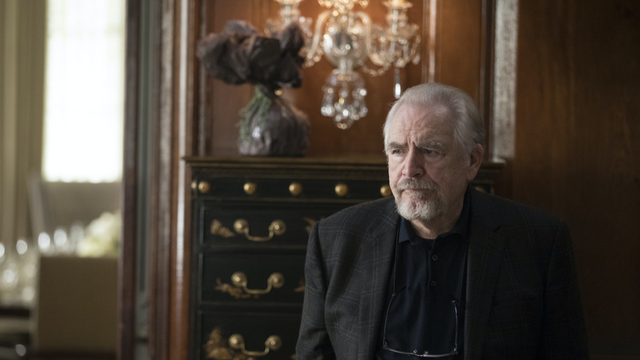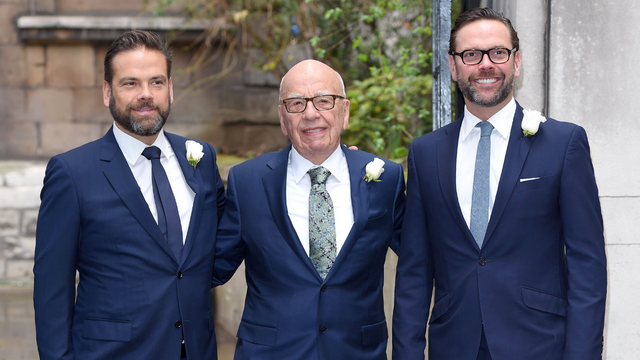It is a work of Renaissance art. It has parallels in the Bible. Instead, it has the stale undertones of a Sophoclean Greek play. Succession’s third season is the culmination of all of these, and maybe even more, readings.
The HBO series has advertised itself as a dark comedy about horrible characters doing terrible things for 29 episodes. The latter nine episodes of this season are true to this principle, however, they heavily rely on the tragedy storyline as a crutch.
The outlines of Shakespearean stories stand apparent, including the tragic hero, the good and bad morality, avarice, retribution, and hamartia (the tragic flaw). By never allowing the story to come to a conclusion, it also succeeds in subverting the narrative. People in this place, like Kendall Roy, the “oldest son” (sorry, Connor), are destined to live under the dictates of a fictitious media dictator.
Comparing a limited series to the sad and heartbreaking ways in which a tragedy unfolds is pretty rich. But the air of the show is heavily occupied by these allusions (Shakespearean, Roman, Greek, Jacobean — you name it). Why Succession adheres so rigidly to these mythological allusions gets at the very core of the program.
This group of imperfect people has a traditional display of pomp, the illusion that they are better than you, and unchecked power that has the potential to alter reality and the truth. The positioning of Kendall, Shiv, and Roman during the tense conclusion was reminiscent of High Renaissance art, as one critic noted: “
His crumpling in the dust as he confessed, with his brother and sister reluctantly flanking him in the corrupted shape of a heart, reminded me of the Bandini Pietà, also known as “The Deposition.”
While supernatural themes and predictions provide a heavenly weight in Shakespearean arcs, the moral preoccupation with lineage and glory in Succession necessitates ceremonial splendor.
There have always been other similarities to the catastrophe. This was represented in episode 3 by a package of doughnuts that at first glance seemed innocent but was, however, glazed with terrible connotations.
A writer discovered the usage of “objective correlative,” in which an image or item strongly evokes an emotional response. Consider Lady Macbeth from the play Macbeth, whose “damn spot” of blood represents her intense, unforgivable guilt.
Similar to how the doughnut box Dear Mr. Logan Roy sends in this episode serves as a reminder of decades of parental abuse and neglect while also serving as a symbol of his omnipresence and angry adoration.
online pharmacy finasteride over the counter best drugstore for you
Succession replaces the blood in Macbeth with water; every seasonal tragedy and the ideological act of bloodshed are connected to water and immersion. (Kendall’s weightless form remaining motionless in episode 8; the Season 1 waiter who passed away; and numerous other hints)
The writer of the show presented Succession as a drama akin to King Lear to actor Jeremy Strong, who plays Kendall Roy. This similarity between King Lear and Succession is profoundly ingrained.
Even Logan Roy’s season-long fragility—the UTI, the confusion—signals frailty evoking King Lear and suggests that the media tyrant may finally be nearing the end.
MUST READ: Are Holly and Nathan Still Together: What Happened Between Nathan and Holly?
Additionally, one of the architects of the now-famous Strong profile wrote, “He’s not playing it like a joke. He is acting as though he is Hamlet. In the play, Hamlet pretends to be insane while he exacts revenge on his father; in season 2 of the sitcom, Kendall adopts the role of the devoted son in need of parental love while carrying out his father’s instructions. In Kendall Roy, the “tragic hero” element—a crucial component of every tragedy—finds a suitable home. Due to his personality or just because it is his fate, he is the one who must deal with hardship.
In this season’s episode 8 (Chiantishire), tormented by the legal battle against the firm, Kendall recognizes the fate he must endure – abuse and defeat. Even death’s liberation is beyond our grasp.
Both his personal and exterior conflicts are significant. Recall how Kendall insists that he is “good” and his father is “bad,” respectively. But Succession exemplifies the moral confusion that exists because different people interpret good and evil differently.

The theme of every episode’s finale is betrayal, which is present whenever there is a tragedy. It’s not just one act, but the inevitable conclusion to the protracted narrative. Kendall, Shiv, and Roman, the now-united trio of siblings, bravely advance into Logan’s battle room when they are once again betrayed, this time by the mother. There are clues of Tom Wambsgans’ betrayal interwoven throughout the story, he is Shiv’s husband and is played by Matthew Macfadyen.
In any case, “What am I going to do with a soul?” In the season finale, Greg (played by Nicholas Braun), who has been asked to perform a risky move, says. No character, not even Greg, seems even somewhat bothered by their deal with the devil, which in this context might be anything from political ambition, capitalist avarice, or just a lack of morality. Strangely, it seemed that someone like Kendall was already experiencing the results of striking this Faustian bargain.
In the play Doctor Faustus by Christopher Marlowe, the doctor strikes a deal with the devil to gain knowledge and power in exchange for his soul.
online pharmacy trazodone over the counter best drugstore for you
When Kendall understands the terrible stupidity, he appears to be echoing the play’s own end. He requests to be freed from both the family business and the family unit as a whole.
Succession resembles a Greek tragedy in certain aspects as well. Aristotle identified two factors—the sudden realization (Anagnorisis) and the shift in the course of events—as contributing to the turn of events (peripeteia).
Shiv and Roman make the discovery when they realize the truth Kendall has lived with: their father will never consider them to be worthy successors.
This causes a stunning reversal of fortune, meaning they will never own the business and wealth promised to them. Roman, who is now on his knees (echoing Kendall’s earlier fall), recognizes the extent of the authority he may never have as the atmosphere is tense.
Succession yet manages to avoid the only conceivable conclusion despite the obvious similarities to a tragedy. Tragedies offer catharsis, an emotion associated with sympathy (for the characters) and terror (that one may be condemned to a similar fate because of shared values).
There is sympathy and pity as Kendall exhibits a profound sense of regret, guilt, and understanding of his own mistakes in the previous episode.
In a previous interview, Jeremy Strong mentioned that he often hears how detestable the characters are, and he said, “I find that so interesting as if a character is either lovable or unlikeable.” The binary’s markings are not really clear.
READ MORE: How Tony Romo Well-Known As a ”Broadcaster” Built a Fortune of $70 Million?
But because of its aspiration to be more, Succession exudes a sense of rebellion. Logan reads a novel to his grandson about a cherished cat who passes away but whose spirit lives on to aid a new kitten in adjusting to her family in the last episode, “All the Bells Say.” Logan didn’t seem to get the message about mentoring the next generation, not even in feline form.
online pharmacy azithromycin over the counter best drugstore for you



Comments are closed.